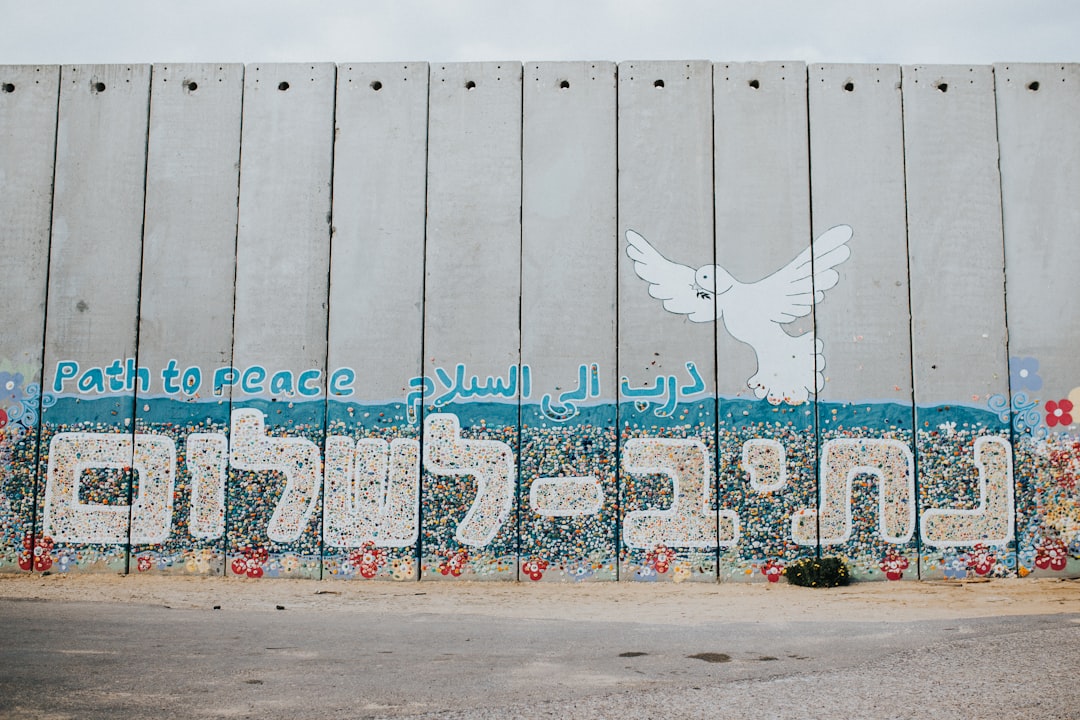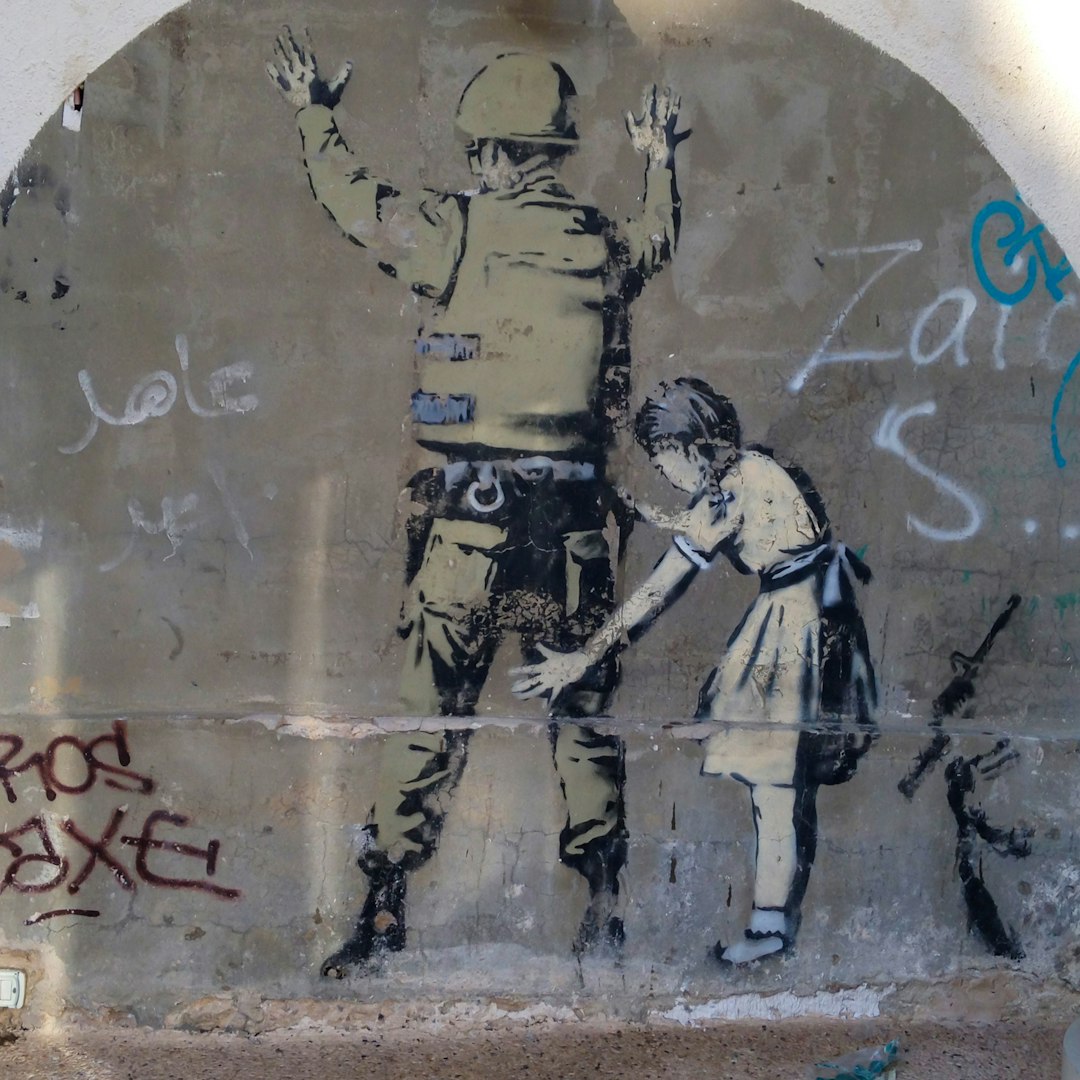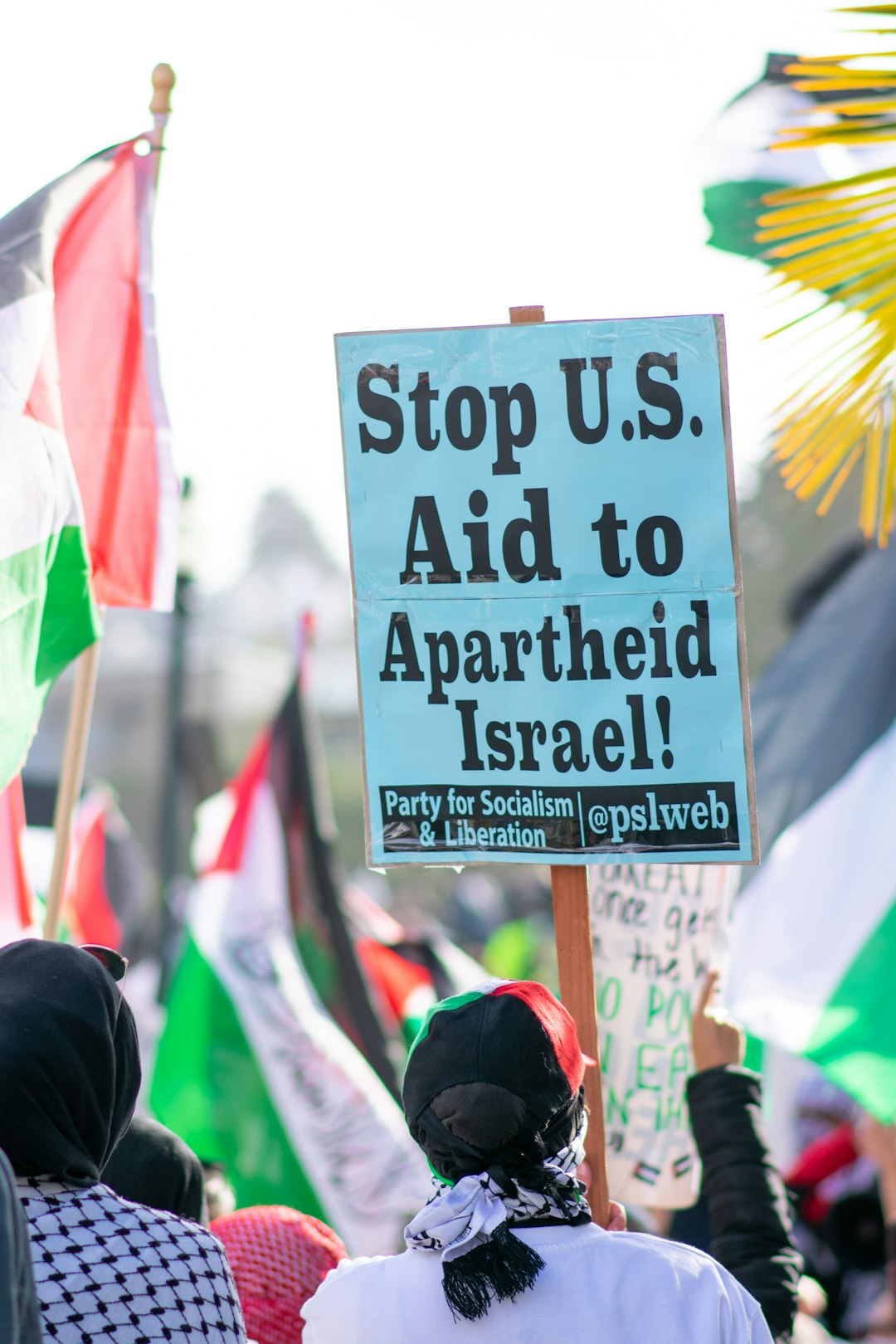The Most Manipulated Words During the Israel-Hamas War
Dozens of terms have been grossly misused by media professionals, pundits, politicians, and social media types throughout the Israel-Hamas war, notably these eleven.

Please consider supporting our mission to help everyone better understand and become smarter about the Jewish world. A gift of any amount helps keep our platform free of advertising and accessible to all.
You can also listen to the podcast version of this essay on Apple Podcasts, Google Podcasts, or Spotify.
Share this essay using the link: https://www.futureofjewish.com/p/11-most-abused-words-from-israel-hamas-war
There is a famous quote from Mark Twain that goes like this:
“The difference between the almost right word and the right word is really a large matter — it’s the difference between the lightning bug and the lightning.”
Twain was spot on, of course, alluding to a major problem with language nowadays, especially in the social media era. What gets exaggerated gets likes and shares. Buzzwords are provocative and profitable. And truth is banal or just boring.
Hence why dozens of terms have been grossly misused by media professionals, pundits, politicians, and social media types throughout the Israel-Hamas war, notably these eleven:
1) Genocide
Raphael Lemkin, a Polish lawyer of Jewish descent, introduced the term “genocide” in 1944 to refer to events including the Nazis’ systematic extermination of Jews. She explained the need for a new legal term to describe this horror, saying: “There has been no serious endeavor hitherto to prevent and punish the murder and destruction of millions. There was not even an adequate name for such a phenomenon.”
“Genocide” refers to the physical destruction of an entire group that has been targeted on the basis of its identity, which is not Israel’s objective in Gaza, both stated or in practice. Three more reasons make Israel’s response to Hamas’ massacre on October 7th nothing remotely close to genocide:
The actual number of casualties in Gaza is highly questionable, since its only source is the Hamas-run Gaza Health Ministry. Unlike Israel and most other respectable countries, this ministry doesn’t differentiate between Hamas combatant casualties and non-combatant casualties, by way of purposeful deception.
Non-combatant casualties are an unfortunate yet natural part of war, and thus do not automatically constitute genocide.
Using non-combatants to help or shield combatants, which Hamas does on a daily basis, could make them legitimate targets according to international law. Hamas has its combatants wear civilian clothing to confuse the Israeli military and make it seem like more civilians are dying.
The reality is that Israel is responding to Hamas’ genocidal obsession and ideology, which culminated in its unspeakable attacks on October 7th.
2) Ethnic Cleansing
While there is no precise definition of ethnic cleansing under international law, the charge suggests that Israel is systematically working to rid the Levant of Palestinians, including Israeli Arab citizens, through force or intimidation, in order to create a homogeneous society. This is a fundamentally inaccurate accusation.
Within Israel, Arab citizens are entitled to the full rights of citizenship, with safeguards for their equal treatment. Israeli laws and democratic institutions, including the independent courts and robust free press, uphold and speak out for these rights.
There is also no doubt that Israeli Arabs experience discrimination, just like other minority groups in countries around the world. While Israel must do better in dealing with issues of bias, discrimination, inequity, and racism, its policies in no way correlate with ethnic cleansing.
And, while it is fair to criticize Israel’s actions in the West Bank and Gaza, there is no mainstream Israeli ideology, movement, policy, or plan to exterminate or expel the Palestinian population from these areas. Israel rightfully argues that its policies towards the Palestinians are based on security concerns and the need to defend its population in the face of decades-long Palestinian terrorism.
In fact, most security arrangements, such as separation walls and checkpoints, were a response to flagrant Palestinian terrorism, such as in the Second Intifada (before which there was no wall and minimal checkpoints).

3) Occupation
Ironically, the Jews have done more to “liberate” the Palestinians than Palestinian leaders have done themselves. In one anecdote, the Arab population dramatically increased after Zionists eradicated malaria from the region in the 1920s.
Since the State of Israel’s founding in 1948, Israelis have tried to accommodate the Palestinians every which way — territorial concessions, peace agreements, financial aid, work opportunities, and more — but nothing seems to work. If anything, these gestures had the opposite effect: more vile terrorism against mostly innocent Israeli civilians.
So we put up checkpoints and walls to better protect our borders, just as any country would reasonably do. Our politicians and security establishments let us down on October 7th, but we know that doesn’t change the very intentions of so many Palestinians: to exact as much hurt and spite on as many Jews as possible. This wasn’t the first time, and it probably won’t be the last one.
When terror groups hijack territories like they’ve done in Gaza, using it as a launchpad for Islamic jihad, significant military action is the only way, despite the risk to innocents. If Israel did not respond in the ways it has, there would also be a paramount risk to innocents — the hundreds of thousands of Israelis who live in towns that border Gaza.
If you’re asking us to deny our own citizens the same right that you would fight for on behalf of others, well, that’s an awkward act of self-sabotage — and more of a you problem than an Israel problem.
4) Uninvolved Palestinians
A poll by Bir Zeit University in Ramallah found that more than 75 percent of Arabs in the West Bank and Gaza support Hamas and what they perpetrated on October 7th. If an election was held today, Western-backed Palestinian Authority President Mahmoud Abbas, the “Mayor of Ramallah” (since that’s all he really controls) would lose to Hamas.
This is a shame because the Palestinians are highly capable and among the most educated in the Arab world. Yet for the last hundred years or so, they’ve diverted much of their resources and capabilities not to building something for themselves, but to destroying others.
At any given moment, it is more important to the Palestinians that the Jews won’t have a safe state than it is for them to develop a successful, prosperous country alongside one for the Jews. The billions worth of so-called “humanitarian aid” that the Palestinians receive is predominantly used for continuing the struggle of “liberating Palestine from the river to the sea” than for its stated purposes.
Yet it is impossible to want for the Palestinians what they do not want for themselves (an independent state alongside Israel as a Jewish one). They cannot be forced to turn Gaza or the West Bank into prosperous places if they prefer to keep them as launchpads for their “armed struggle.”
Hence why Einat Wilf, a former Left-wing Israeli politician, claims that “the Palestinians are not in danger and they do not need the world’s help. They just have to decide that it is more important for them to build for themselves than to destroy for others. Once those are their priorities, everything else will fall into place.”1
5) Settler Violence
Being a settler means that you live in an Israeli (Jewish) settlement in Judea and Samaria (also known as the West Bank). Not all settlers are created equal; some live there for ideological reasons, others simply because their family lives there, still others because of the school system, the proximity to Jerusalem, and the cost of living.
The West Bank is not occupied; it is disputed territory. Jews live in less than 12-percent geographically of the West Bank. They are not an ongoing administrative presence or the government in the West Bank, as evidenced by the fact that they don’t make rules or draft laws. They are not responsible for the infrastructure, and they are not involved in the running of the Palestinians’ day-to-day lives there.
The Palestinians there have their own police. They have their own government. They pay taxes to somebody else. That’s not occupation.
“We live in a portion of land that was seized from Jordan in a war that Israel didn’t start in 1967, and that Israel seized with the desperate hope that the Jordanians would take it back in exchange for peace,” according to Rachel Moore, an Israeli settler. “And Jordan said, ‘We don’t want it. We are not interested in the problem.’ In the same way, by the way, that the king of Jordan has now said, ‘We will not take a single refugee, not one. We don’t want this problem. You can have it.’”
The settler violence narrative that the mainstream media likes to over-inflate is an effort to distract the world from Hamas’ jihadism and Iran’s expansionism — and the existential dangers they both pose to Israel, the only democracy in the Middle East.

6) Refugees
In 1950, the UN High Commissioner for Refugees was established to handle all of the world’s refugees. However, following pressure from Arab countries, the Palestinian refugees remained the sole responsibility of the United Nations Relief and Works Agency for Palestine Refugees in the Near East (UNRWA) — which to this day remains the world’s only refugee agency dedicated to a specific population.
There’s nothing normal about this UNRWA’s existence and activities. The agency was established a year after the 1948 Israeli War of Independence, in order to provide shelter, welfare, and health services for hundreds of thousands of Palestinian refugees. They refused to be absorbed into the new countries, because they understood that this would mean they had lost the war against Israel, and they haven’t been willing to accept the defeat to this day.
Over the years, there were changes and simplifications for the terms to receive refugee status and the eligibility of descendants to receive services from the agency. At first only those who had lost their home and livelihood as a result of the 1948 war were considered refugees (with the definition later broadened to include their children).
But beginning in 1982, the right to be defined as a refugee was expanded to include every generation of descendants. In other words, even the great-grandchild of a refugee is also considered a refugee, making a mockery of the overall mission for refugee organizations: to resettle people and end their refugee status.
As a result, in its 74-year existence, the number of UNRWA beneficiaries has grown from 700,000 refugees, to almost six million by 2022. This includes 1.6 million people in Gaza, a fourth generation of refugees, which is largely perpetuated by the UNRWA’s budget exceeding $1 billion annually.
7) Forced Displacement
More than 80 percent of Gaza’s population (1.8 million people) have been displaced since Israel began its retaliatory operations against Hamas.
Israel reportedly asked Egypt to allow temporary refugee camps in the Sinai Desert, but the Egyptians have called this request a non-starter. Meanwhile, Hamas has tried to limit Gazan migration within Gaza, preferring to keep them as human shields in the name of “defending our homeland.”
No one in Israel is pretending that the situation in Gaza is pristine for the locals, but it’s not Israel’s fault that Hamas didn’t spend any of its billions in aid and revenues on Gazan safety. Nor is it Israel’s fault that Egypt, Jordan, and other Arab countries refuse to shelter any Palestinians in their vast countries, which could easily be funded by international actors.
For now, the least bad of all the bad options is to keep displaced Gazans in the Strip, providing protection and humanitarian assistance where they are. The proposal is pretty simple: Leave the battle zones that resulted from Hamas’ unconscionable attacks on Israel, or risk your death. Fortunately it seems that most Gazans have voted with their actions and migrated to IDF-designated safe zones.
8) Self-Defense
Much has been made about Israel’s so-called right of self-defense, but I’m not sure it’s been relevant since the first few days of Israel’s response to Hamas’ massacre on October 7th.
Hamas’ attacks were indeed an act of war, and we are now in the midst of this war, far beyond the realm of self-defense. Certainly there are rules of war and international laws, and I don’t think Israel is irresponsibly messing with them, but I also don’t think Israel takes lightly the annihilistic words of Hamas and its chief sponsor, the Islamic Republic of Iran. Nor should it.
As Menachem Begin, Israel’s sixth prime minister, once said: “Israel is still the only country in the world against which there is a written document to the effect that it must disappear.”
Moshe Sharett, the country’s first foreign minister and second prime minister, would remind us: “The State of Israel must, from time to time, prove clearly that it is strong, and able and willing to use force, in a devastating and highly effective way. If it does not prove this, it will be swallowed up, and perhaps wiped off the face of the earth.”
And Yitzhak Rabin, Israel’s fifth prime minister, would make clear that “Israel has an important principle: It is only Israel that is responsible for our security.”

9) Proportionality
Then there are the accusations that the Israeli response is not “proportionate.” Under International Humanitarian Law, proportionality requires that any degree of damage (up to and including death) to civilians not be “excessive” in relation to the “military advantage anticipated from a strike against a military target.”
Simply, and unfortunately, international rules of law recognize that civilians are often killed during war; and, most of the time, these deaths are actually not indicative of a war crime. Instead, the legal test for “proportionality” requires that each individual strike be looked at with a particular balancing analysis: The strike must be intended to achieve a military objective.
Therefore, it is a war crime to strike with the intent of targeting civilians, and without any military objective whatsoever. Under this definition, Hamas is guilty of a double-war crime: the intent to target Israeli civilians without reasonable military objectives, and the use of Palestinians as involuntary human shields.
Under the First Additional Protocol to the Geneva Conventions of 1977, in both Article 51(5)(b) and Article 52(2), we know that when Hamas uses its own population as human shields — either by using them to shield combatants or to shield military infrastructure and equipment — Hamas has, under international law, turned civilians targets into military targets.
This does not give the Israeli military free reign to attack hospitals, schools, and mosques; however, it does mean that an Israeli attack on civilian infrastructure which has been turned into a military target by use of human shields is not illegal under international law. Instead, such attacks must be analyzed through a three-part balancing test, which is typically carried out by Israeli military lawyers who work in complete independence of the IDF.
10) Anti-Zionism
Antisemitism didn’t go away after the Holocaust. It just morphed into something more socially defensible, like “anti-Zionism.” In the West, antisemites learned to become mindful of the prohibition on blatant antisemitic expressions resulting from post-Holocaust “guilt.” Instead, they turned their position to anti-Zionism, just as the Soviets once did too.
Anti-Zionism is a philosophy of negating Jewish self-determination in our indigenous homeland. Anti-Zionists deny us this right, the same right they advocate for Palestinians or other peoples. If you believe that Zionism is the only form of self-determination that’s wrong, this is discrimination against the Jewish People. This is antisemitism.
“Of course not,” many anti-Zionists will exclaim. “Anti-Zionism is not antisemitism.”
What they mean is that anti-Zionism is not antisemitic in intention, only in its outcome. But surely, Jews aren’t afforded the academic luxury of defining what it and isn’t antisemitic. Israelis, do I mean? The attempt at a distinction between Israelis and Jews is fundamental to anti-Zionism arguments. Antisemitism, we are incessantly assured, is anything but anti-Zionism.
11) Humanitarian Pauses
During this war, Israel has been aggressively persuaded by the U.S. and others to accept “humanitarian pauses” — a term that seems to have been invented specifically for and only applied against Israel.
I’m trying to remember if there were “humanitarian pauses” during the battles against Al-Qaeda, the Taliban, and ISIS. More importantly, should there have been?
There’s a term for this: It’s called “double standards.”
A White House spokesperson even suggested that the steps Israel’s military has taken to prevent civilian casualties in Gaza might go further than what the U.S. would have done if it was in Israel’s place.
“There are very few modern militaries in the world that would do that,” said John Kirby. “I don’t know that we would do that.”
As British writer Douglas Murray pointed out, the first tendency of international observers, both friendly and unfriendly to Israel, is to offer the country advice on how it should conduct its military operations.
“For Israel seems to be the only country in the world never allowed to win a conflict,” wrote Murray. “It is allowed to fight a conflict to a draw, but rarely to a win. Which is one reason why the wars keep occurring.”2
Einat Wilf on X
“The Easy Politics of Criticizing Israel.” Sapir.


Great article but you missed a word- “apartheid “.
The ones outside the Nova Exhibition here in NYC are now megaphoning the narrative “How could they have been dancing just miles away from a Holocaust”. Honestly, I don’t know how Jews stay sane 😕.